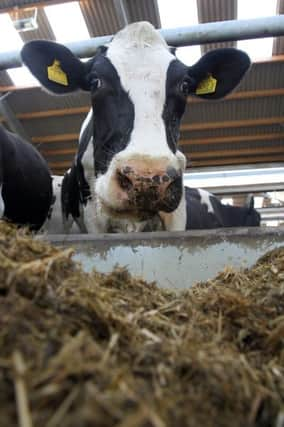It has been a good week for dairy


And the good news is that he has kept his word. The recent confirmation of a penny per litre increase coming the way of its farm suppliers for June is the latest outworking of Dale Farm’s commitment to the co-op’s producer base.
And there is more good news coming down the track. Dale Farm’s 2017 winter bonus scheme should serve to make a real difference when it comes to delivering sustainable returns at the back end of this year. Let’s just hope that the other milk buyers follow suit over the coming months.
Advertisement
Advertisement
While the expected strengthening of milk prices is to be welcomed, it should hardly be a cause for euphoria breaking out within the milk sector. The reality is that many farmers are still paying back debts that mounted up when milk markets crashed 18 months ago.
But one swallow doesn’t make a summer. The last thing we need is a period of decent returns, only for the markets to collapse again in a few months’ time in the wake of expanding global milk output. Local dairy farmers know all too well that market volatility is an ongoing challenge, which they must confront.
And the time to do this is now, when there is a bit of fat in the system: not when markets are delivering the likes of 17 pence per litre.
Last year saw the Dairy Council host a major conference on volatility, subsequent to which a commitment was made by the organisers to come forward with plans that would allow the local dairy industry to deal with volatility in a meaningful way.
Advertisement
Advertisement
Surely now is the time to have a real discussion on what these measures might look like and, as a result, have effective systems in place that will deliver a degree of stability for farmers the next time milk prices start heading in the wrong direction.
We can’t rely on Brussels or London baling us out the next time the smelly stuff hits the fan. At the very least we will need some semblance of a ‘self-help’ programme in place before any form of direct aid package would be considered by either the UK government or the EU Commission.